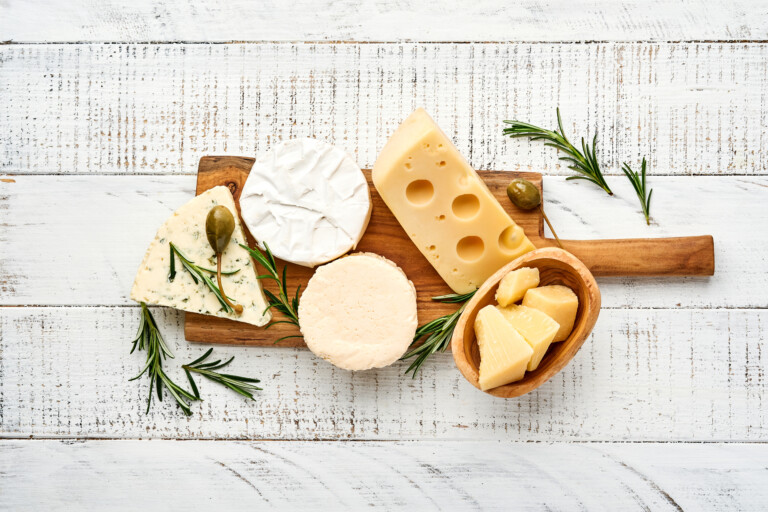Is Farina Vegan: A Guide to Wheat Germ on a Plant-Based Diet
Farina has graced breakfast tables for generations with its warm, comforting porridge. This simple dish, made from wheat germ, has been a reliable source of whole grains and fiber. For vegans navigating the often tricky world of food labels, a crucial question arises: is Farina vegan?
What is Farina?
Farina, also known as cream of wheat, is primarily milled wheat germ. This nutrient-rich part of the wheat kernel is separated from the endosperm during flour production. Farina is then further processed into a finer, edible form – flakes or granules – ready for quick and easy cooking.
Ingredients in Farina
At its core, Farina’s main ingredient, wheat germ, is derived from a plant, making it inherently vegan. This good news, however, comes with a few caveats that require closer examination. Additional ingredients in Farina include:
- Salt: Enhances flavor and adds a balance to the sweetness.
- Iron: Often added for fortification, especially for enriched Farina.
- Folic Acid: Another common fortifying vitamin found in some Farina options.
- Vitamins and Minerals: Some brands might further fortify their Farina with additional vitamins and minerals like B vitamins and calcium.
- Sweeteners: Some farina variations have added sugar, brown sugar, or artificial sweeteners for taste. Be mindful of the source of the sugar, as some brands might use bone char for processing.
- Flavors: Flavored Farina (e.g., cinnamon or maple) typically contain additional flavorings, which could be natural or artificial. Check the label to ensure they are vegan-friendly.
- Thickeners: Some brands might use thickening agents like tapioca starch or xanthan gum to improve the texture of the cooked Farina.
- Antioxidants: Certain formulations might add antioxidants like vitamin E for increased shelf life.
Watching Out for Dairy
While the base ingredient of Farina is vegan, other components in commercially available options can cast a shadow of doubt. Here’s where vigilance is critical:
- Added Sweeteners: Some Farina brands include sugar, which might be sourced from sugar cane or sugar beets, both readily accepted in vegan diets. However, some manufacturers use bone char for sugar processing, a non-vegan practice. Look for “bone char-free” labels to ensure your sugar is cruelty-free.
- Flavors and Fortifications: Flavored Farina versions and those fortified with vitamins and minerals may contain additional ingredients, some of which might not be vegan. For example, honey, often used as a sweetener, is unsuitable for vegans. Read labels carefully to identify any animal-derived ingredients or additives.
- Cross-Contamination Concerns: Although uncommon, the processing facilities used for Farina might also handle dairy products. This raises the possibility of trace amounts of dairy protein transferring to the Farina during production. Even this trace potential might be a deal-breaker for some vegans with strict dietary restrictions.
Tips for Finding Vegan-Friendly Farina
With some detective work, you can still enjoy your favorite creamy wheat porridge while staying true to your vegan principles. Here’s how:
- Scrutinize the Ingredient List: Read labels carefully and avoid products containing dairy-derived ingredients like milk powder, casein, or whey.
- Seek Certification: Look for certifications like the Vegan Society or PETA on the packaging, signifying official verification of the product’s vegan status.
- Shop Organic Brands: Organic brands often follow stricter production guidelines and are less likely to include non-vegan additives.
- Embrace DIY: Consider making your own Farina at home to have complete control over the ingredients. Purchase whole wheat groats and grind them into a fine, farina-like consistency in a food processor.
Exploring Vegan Breakfast Alternatives
While Farina can be a satisfying and nutritious vegan breakfast option, a whole world of plant-based delights is waiting to be explored. Here are some delicious alternatives:
- Oatmeal: A classic choice, oatmeal offers versatility and fiber goodness. Choose steel-cut oats for a chewier texture and top with fruits, nuts, or seeds for a flavor boost.
- Chia Pudding: Packed with protein and omega-3 fatty acids, chia pudding is a delicious and healthy treat. Soak chia seeds in plant-based milk overnight and top with your favorite fruits and toppings.
- Tofu Scramble: A savory alternative to traditional scrambled eggs, tofu scramble, provides protein and can be customized with spices and vegetables for a satisfying breakfast.
- Fruit and Nut Smoothies: Blended with plant-based milk, fruits, and nuts, smoothies offer a quick and energizing breakfast option packed with vitamins and minerals.
- Vegan Pancakes or Waffles: Made with whole-wheat flour, plant-based milk, and banana or applesauce, these fluffy beauties are satisfying and guilt-free. Top with vegan yogurt, fresh fruit, or maple syrup
Enjoying Farina Responsibly
Whether you choose store-bought or homemade Farina, remember the core purpose of a vegan lifestyle: minimizing animal exploitation and harm. By making informed choices, reading labels carefully, and opting for cruelty-free alternatives, you can ensure your love for Farina aligns with your vegan values. So, the next time you crave a warm bowl of breakfast comfort, remember, with a bit of awareness and exploration, you can still enjoy your favorite creamy wheat without compromising your ethics.





